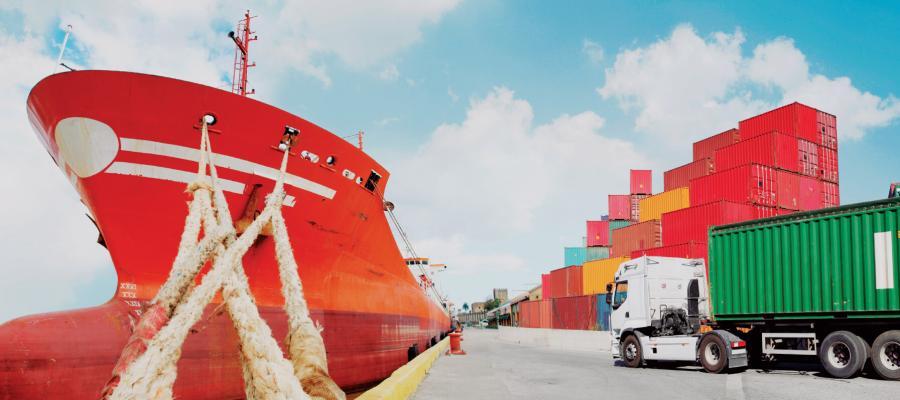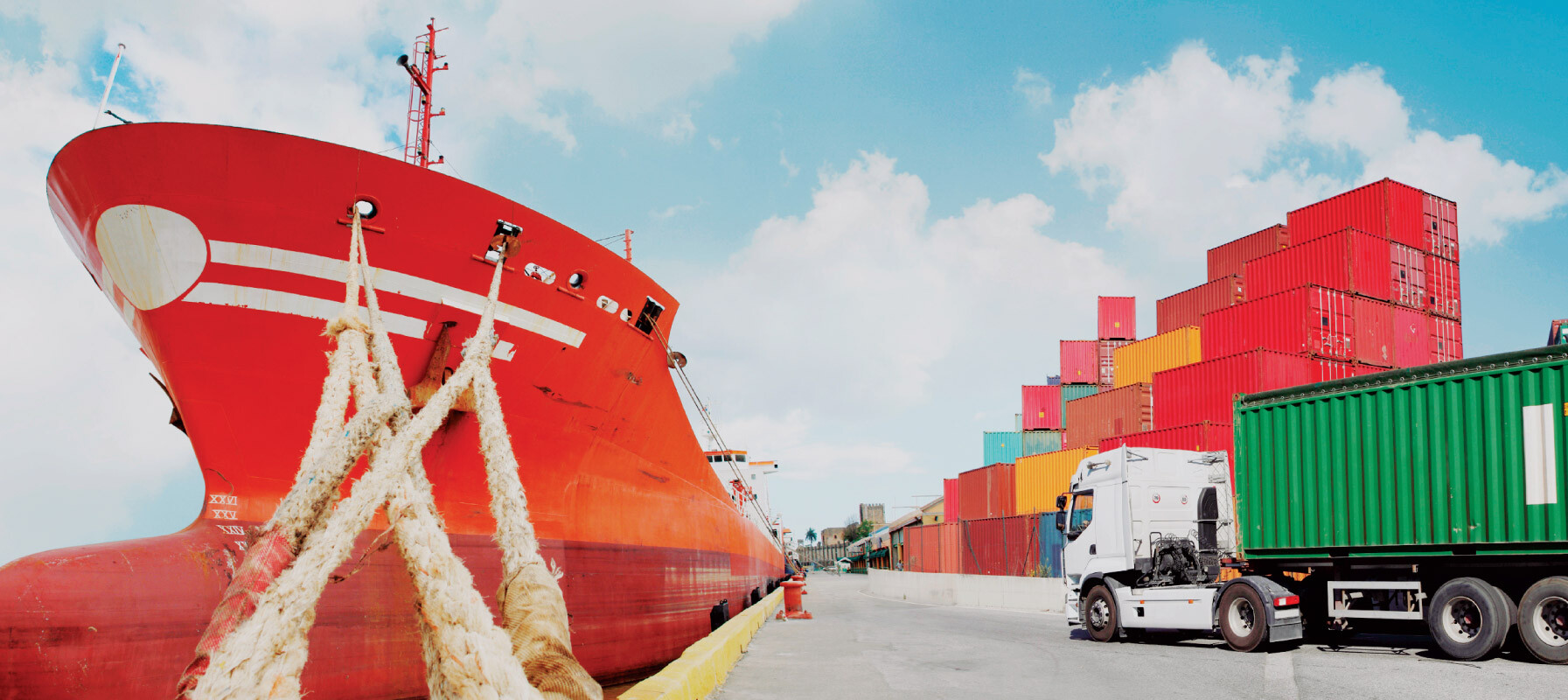Interview with
Mr. Saliya Senanayake
Chairman

First of all, tell us about the current situation in Sri Lanka politically and economically? The country is stable and developing as far as we can ascertain from the media, tourism is booming, and investments are pouring in is that a correct assessment? How is the relationship with India and China currently?
Since the end of the Insurgency in 2009, the country has been progressing, though not as fluidly as we expected. Much of the infrastructure that was damaged or delayed due to thirty years of strife has been rebuilt. Foreign investment has begun in many areas. The tourist arrivals have risen significantly over the past few years and it has become a booming business all over the country. Sri Lanka has been named as the top destination to travel by worldwide media.
There have been many important investments from Chinese and Indian companies in the construction and transportation sectors. Now there are expressways connecting Colombo to many parts of the country including the ports and airports, with more roads, railroads under construction. The port city project right next to Colombo port is the largest ever foreign investment received by the country worth US$15 billion. In the future it hopes to attract more than US$30 billion worth of investments. It seems China and India are competing in the country for influence for obvious geopolitical reasons. Sri Lanka would be smart to attract more investments based on the rivalry of these Asian giants, in addition to Japan, Korea and Middle Eastern countries as well as the West. Also, as a developing country, it should try to improve domestic political stability and take measures to overcome corruption to improve economic growth, since it has great potential.
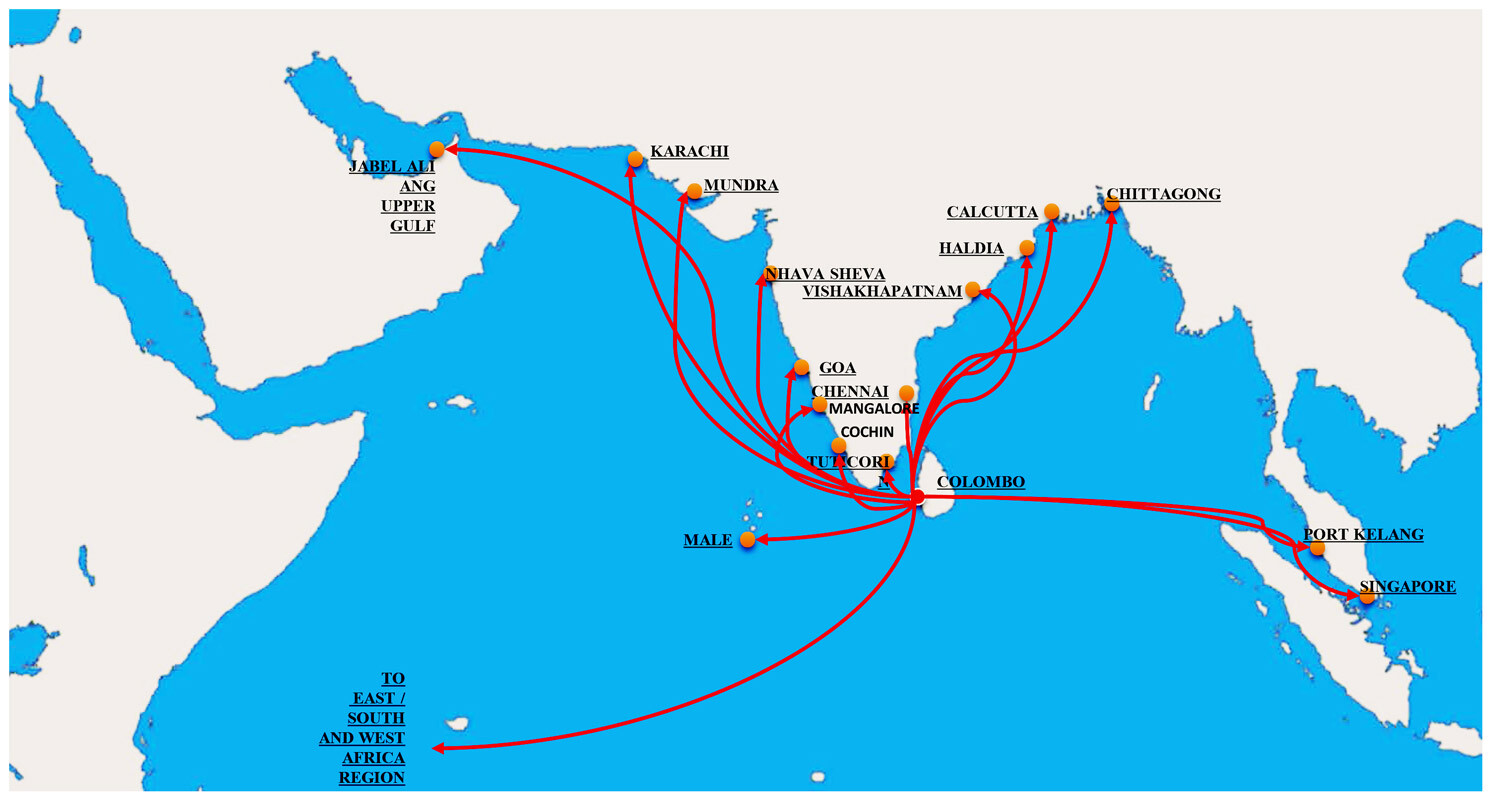
When was Lanka Shipping & Logistics established and who are the owners?
Lanka Shipping & Logistics (Pvt) Ltd (LSL) was established nearly ten years ago with the vision ‘to be one of the leading service providers in Transportation and Logistics Services in Sri Lanka with regional presence’. We believe our promise is our most vital product. Professionalism has been the key word. Balancing empowerment and interdependence gives us strength. We believe in transparency in our dealings with our customers, principals and stakeholders.
LSL is a family owned company under my chairmanship, but we have always been on the look out for ways to enhance the product with various initiatives and adding professionals in to our management team.
I have had a long and illustrious career in shipping and logistics, holding key positions in local and international companies with senior positions in the UK (5 years) and Dubai (15 years) . I returned to Sri Lanka fifteen years ago with a wide knowledge/experience as well as a worldwide network. I am a fellow of the Chartered Institute of Logistics & Transport and a past International VP of CILT. Also a Post Graduate Diploma in Port & Shipping Administration from University of Wales (UWIST).
My son, Ana Senanayake is an Executive Director of the company and is getting geared up to take over the business. He was educated in the UK (Graduate of Warwick Business School) and worked in Investment Banking for six years in the UK and Singapore before deciding to join the family business in 2013. His decision to pursue his professional career in the industry is supported by him obtaining Chartered membership in the Institute of Chartered Shipbrokers (ICS) as well as The Chartered Institute of Logistics & Transport (CILT).
LSL has a wide range of services, which include Sea & Air freight forwarding, 3PL and 4PL solutions, Project cargo handling, ship/port agency and ancillary services (inclusive of Cruise & Naval vessels), Ship Chandelling and bunker supplies, marine logistics and offshore support services, line, NVOCC and feeder agency services and BPO solutions for the shipping and logistics industry.
Other sister companies of the Group represent a leading Container Feeder/ Common Carrier and a leading Regional Liner carrier. The group also has an IT company with specific focus products.
Sri Lanka has a strategic position, close to the main artery of East-West trade. Has Colombo become the transshipment port or hub that many thought it would become? Can you tell us the names of some of the main shipowners that call Sri Lanka directly (whether Ro-ro, container and break bulk)?
The location of Sri Lanka has given it a distinct edge in the maritime industry. Most carriers use Colombo port as the key transshipment hub in south Asia. This geographical location, capacity, efficiency and the professionalism of the community has attracted carriers to make use of it to transshipment, bunkering and many other maritime activities.
Colombo has been one of the fastest growing hub ports in the world, with double digit growth over the years. Port throughput has exceeded 7 million TEU. The major challenge now is to enhance the capacity before demand exceeds capacity. The Colombo South Terminal has the depth and crane capacity to handle the largest container vessels in the world. The government is about to announce the plans to equip the east terminal with gantry cranes (it has already got a 440-meter quay length and eighteen-meter draft) and also to expand the berth up to 1.2 km as planned. A further expansion is the West Terminal with 1.2 km berth at deep draft is planned and interested parties are awaiting the announcement. Each of these developments will add nearly three million TEU in additional capacity to the Port of Colombo.
All the major container carriers of the world call at the port of Colombo and it’s also supported by a large number of regional carriers and common carrier feeder operators.
Among them are :
- Maersk Line (Container Carrier)
- MSC Line (Container Carrier)
- CMA-CGM /APL (Container Carrier)
- Evergreen Line (Container Carrier)
- COSCO/OOCL (Container Carrier)
- Hapag Lloyd (Container Carrier)
- The ONE (Container Carrier)
- NYK (Ro-ro)
- K Line (Ro-ro)
- Mitsui OSK (Ro-ro)
- Hyundai Glovis (Ro-ro)
These are some of the carriers operating in Sri Lankan ports for their operations.
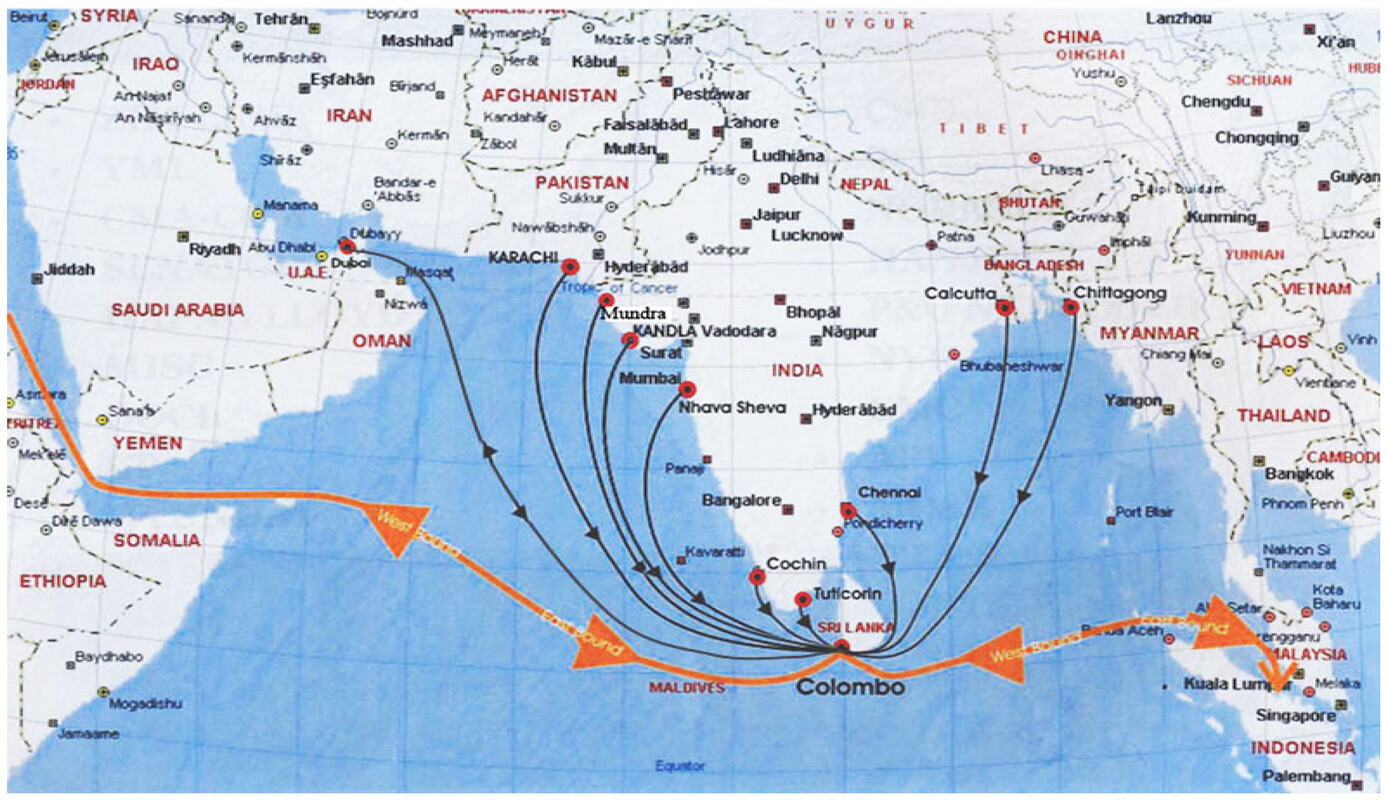
At Lanka Shipping & Logistics, I believe that you are used to handling oversized and breakbulk cargoes. Could you provide us with some examples of that?
You’re right, we are and below are few examples:
- Hydropower Project o/b Main Contractor. We have handled the below items in break bulks and oversized cargo consignments. Water Turbine/Gate Vales/Portal Crane/Gate Hoist
- Rework operation of 09 Transformers at Port of Colombo
- Export shipping of 2 Nos of 60 Ton Drilling Rigs to Saudi (Transportation of 2 x 60MT drilling rigs and accessories from site to Port of Hambantota and shipment to Saudi Arabia)
- Transportation of 3 units of Regen wind turbine generators ex Sri Lanka to Germany door on repair and return basis.
Tell us about the main ports in your country. Colombo and Hambantota are different ports, right? Could you elaborate for our readers so that we can learn more about your country?
Sri Lanka is an island nation blessed with many sea ports around it. Colombo, Galle, Hambantota and the east coast port of Trincomalee (which is the second largest natural harbor in the world) are the four main commercial ports on the island.
- Colombo: as mentioned earlier is a major container hub port. Hence it has limited capacity for break bulk of bulk handling, except for petroleum. Colombo has also an ever-increasing demand from cruise liners and this has increased tremendously over the past couple of years, so now a dedicated cruise terminal is planned. It has also facilities for calls from foreign naval vessels that tend to call regularly.
- Galle: the basin and berths are limited in capacity and draft. Hence, there is now a plan to focus on it as a leisure port for luxury yachts with a planned marina etc. However, Galle (OPL) continues to be a major service port with nearly 800 launch services/month off port for various services including crew logistics/spare part logistics/sea marshall embarking and disembarking etc. The potential remains high with nearly 300 ships passing by the port of Galle every day on the East-West and North-South routes.
- Hambantota: is located in the deep south and right at the door step of the trade routes from east to west and vice versa through the Indian Ocean. With the addition of this port, Sri Lanka’s maritime strength has grown to the extent of competing with the world’s elite (and not only regional competitors). Hambantota’s position in the vast Indian Ocean is the most substantial advantage and we as Sri Lankans are hoping to reap the harvest of this major advantage by adding capacity for handling cargo and increasing facilities to work at sea in Sri Lankan territorial waters.
- Trincomalee: This is the second largest natural harbour in the world, and the available water and land area is about ten times as much as the port of Colombo. It is presently identified to cater to bulk and break bulk cargo, ship lay-ups, cruise and other tourism activities and is open to various developments which have been overdue. Trincomalee boasts of an oil tank farm consisting of 101 tanks built during the British colonial era. Indian Oil Company is presently using fifteen tanks and many plans have been mentioned on how the rest of the tanks will be allocated. Trincomalee is also used for ship-to-ship transfers and other special operations including project cargo shipments.
Apart from that, being an island nation, we try to reap the harvest from the ocean. Fisheries are a major income to the country. A lot of fishery harbors have been purpose built and operate around the island.
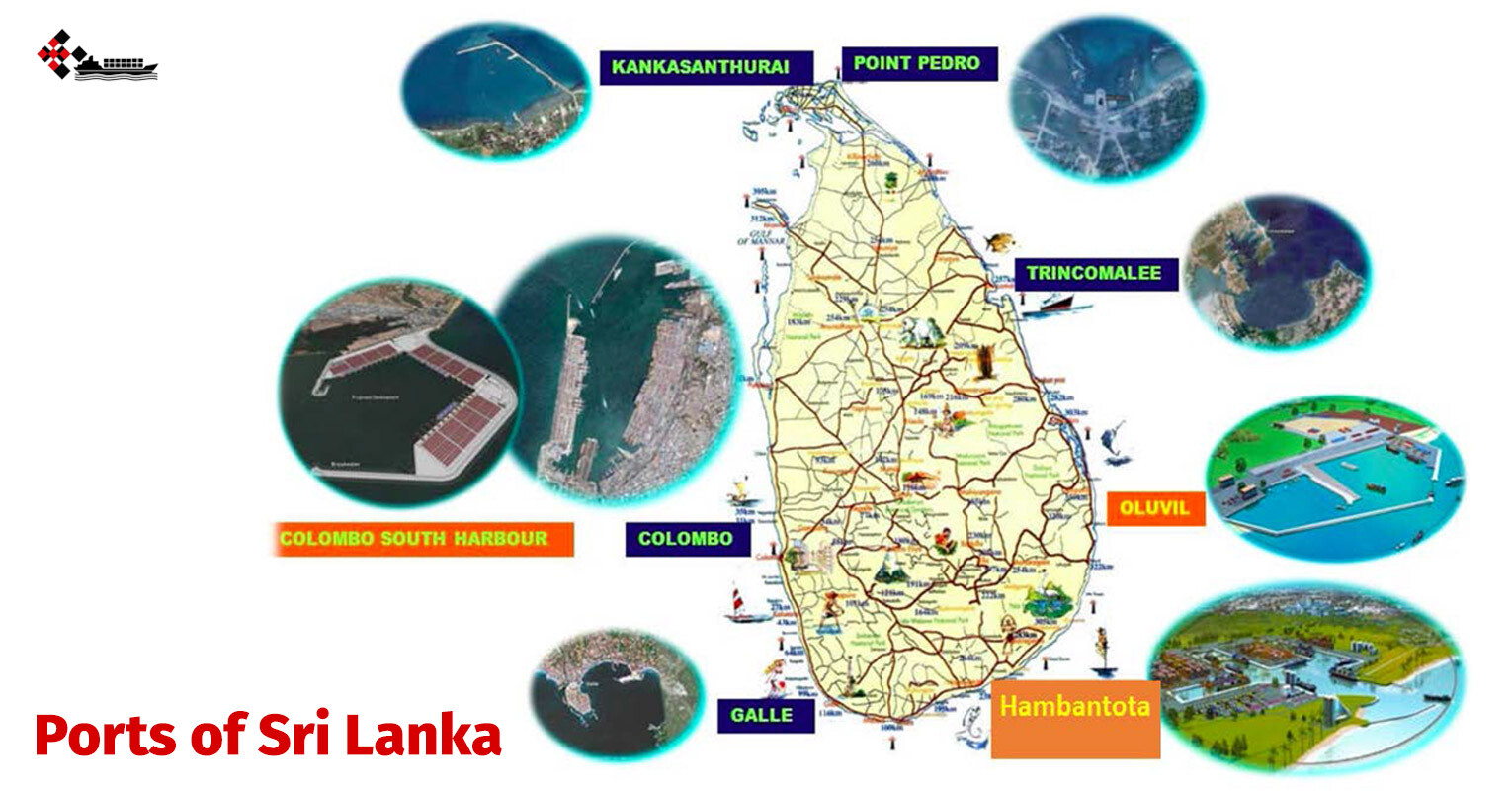
The Maldives are famous for scenic islands and atolls. Is it possible to handle cargo to the Maldives via Sri Lanka?
Sri Lanka has close political and biz relationship with the Maldives and is the most preferred location for handling transshipments to the Maldives. There are regular main line and feeder container vessels connecting Malé through Colombo. Many Sri Lankan shipping and logistics companies have a presence in the Maldives and provides a variety of services.
Cargo service include FCL/LCL/transshipment/by sea and air freight.
Customs clearance is a problem in many countries. How about Sri Lanka?
In Sri Lanka customs clearance is not a difficult process as long as shipping documents are handled correctly.
The customs department has given guidelines with the HS (harmonized system) governed by a tariff to each item. If all are in order there is no difficulty in arranging customs clearance. The industry and port/customs etc. are working closely to develop the single window concept and are following closely in implementing the best practices of the more efficient ports of the world.
Can you tell us a few words about the history of your island? I recall in my young days there was a shipping company called the Ceylon Shipping Corporation. Ceylon then changed to Sri Lanka. Could you elaborate please so that our readers know a bit about the recent developments in your beautiful country?
A teardrop-shaped island cast afloat in the Indian Ocean, Sri Lanka is filled with cultural and natural treasures.
Sri Lanka has a history that goes back 2,500 years. The country has a rich culture associated with Buddhism and Hinduism. Indians, Portuguese, Dutch and the British have all left their marks here, making for a delightful mix of ancient cities, monuments and grand colonial architecture.
Sri Lanka was named Ceylon by the British who controlled the country till 1948 and the British had a profound impact on the education, culture and legal systems of the island. In February 1948, Ceylon, as it was known, became an independent member of the British Commonwealth and changed its name to Sri Lanka. Since then, Sri Lanka has emerged as a multicultural society where people of many ethnicities live together in harmony. Also, Lanka’s fortunate position in the Indian Ocean in the middle of the maritime Silk Road from China to Europe, made it a hub for ancient trade.
Lanka has indigenous products of high export value such as precious gems, pearls, tortoise shell, valuable wood, textiles and spices, especially cloves, cardamom pods, pepper and cinnamon. In the colonial era, Ceylon was introduced to cash crops such as coffee, tea and rubber that were cultivated mainly for export, and now with value addition.
It is a coincidence that you referred to the Ceylon Shipping Corporation (CSC), the national shipping line of Sri Lanka. I started my career as a Management Trainee at CSC in the seventies and served for fifteen years. CSC took the lead to develop shipping services connecting the Country’s main trading areas. I was one of the leading players in the Containerisation drive of CSC, with the first ever full container service between South Asia and Europe in 1980. For various reasons, the success story did not continue and presently, CSC has a low key presence in the industry. Many nostalgic and exciting memories remain among the many professionals produced by CSC, who have contributed towards the development of the industry over the years.
There are many freight forwarders in Sri Lanka. What advantages would you say that customers gain when dealing with your company?
Customers benefit from our professionalism and personalized service, with competitive pricing and a finger on the pulse of the industry. Also, our expertise in certain sectors and understanding the customers’ needs and pain points. Furthermore, top management that is well connected within the shipping community, hence their recognition improves. We provide end-to-end services, customs brokering and other value-added services.
How to get in touch with you?
You can contact me and my team through the below contact info:
Lanka Shipping & Logistics (Pvt) Ltd.
Lanka Shipping Tower,
99, St. Michael’s Road, Colombo 3
Tel.: + 94 11 4681700
Fax: + 94 11 4681770
Email: info@lankaship.lk
Web: www.lankaship.lk
LinkedIn: www.linkedin.com/company/
Saliya Senanayake
Chairman
Email: saliya@lankaship.lk
Ana Senanayake
Executive Director
Email: ana@lankaship.lk
Aruna Perera
Director
Freight Services and Logistics
Email: aruna@lankaship.lk
Trilan Perera
Executive Director Business Development / Ship Agency
Email: trilan.perera@lankaship.lk
Mobile: +94 77 4808236
Channaka Moraes
Manager
Logistics / Custom Clearance
Email: channaka@lankaship.lk
Mobile: +94 77 5598579
Azlan Mahir
Manager
Sea /Air Freight
Email: azlan@lankaship.lk
Mobile: +94 77 7684174


